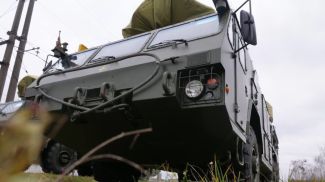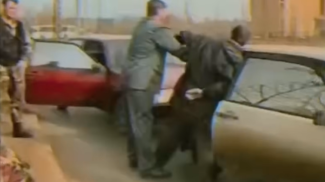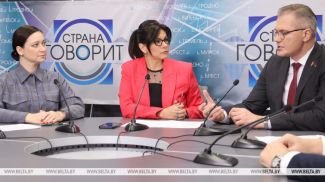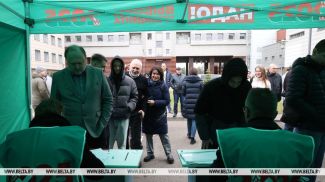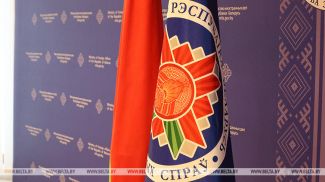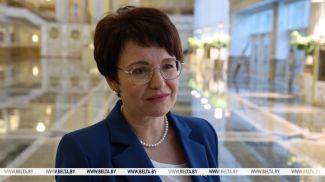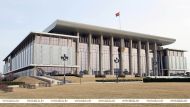MOSCOW, 7 July (BelTA) – The World War Two practice of choking nations using economic tools is once again in demand in the form of the so-called policy of sanctions. Belarus' Prosecutor General Andrei Shved made the statement during a conference of heads of prosecution services of European countries in St Petersburg on 7 July, BelTA has learned. The conference was organized by the Office of the Prosecutor General of Russia in association with the Council of Europe and the International Association of Prosecutors (IAP).
During the conference Andrei Shved presented a report on protecting rights of the individual and the society in connection with an investigation into the genocide of the BSSR population during the Great Patriotic War of 1941-1945. The official said: “International documents and rulings on specific cases have noted more than once that genocide is one of the most revolting crimes the mankind knows. This crime needs to be particularly condemned because the criminals choose entire human groups for elimination.”
Andrei Shved stated with regret that some countries have started to forget the war crimes committed by Nazi Germany and its accomplices. “At the same time criminal activities had never before been so massive and had never before been accompanied by such atrocities,” he pointed out. “Let me remind you of some facts. By launching World War Two and adopting the Barbarossa plan to assault the USSR, Germany's leadership put together documents, which classify war crimes as a state policy. In particular, the order on the special jurisdiction in the Barbarossa area and on special actions of the troops dated by 13 May 1941 provided for mass elimination of Soviet civilians. The Oldenburg plan was developed as part of the Barbarossa plan. It provides for total seizure and transportation of food, raw materials, industrial goods and equipment, museum exhibits, works of art, and cultural artifacts to Germany. Even black soil was mined by excavators to be taken to Germany.”
“Unfortunately, the practice of putting economic stranglehold on nations is once again realized in the form of the so-called policy of sanctions,” the official stressed.
The conference in St Petersburg will last till 9 July. Participants of the conference are expected to discuss the role of prosecutors in criminal cases, civil cases, and administrative cases, prosecution oversight outside the sphere of criminal law, problems of counteracting cybercrimes, illegal migration and ecological crimes. Belarus views the conference as an opportunity for an open dialogue and for delivering objective information about the situation in Belarus, for sharing cutting-edge experience of prosecution oversight with foreign prosecution and justice bodies and international organizations. It is also an opportunity for the Office of the Prosecutor General to develop international contacts.




